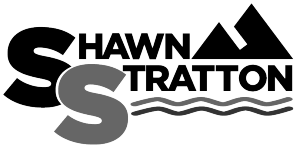One of the most challenging aspects of leadership is maintaining clear and open communication within a team.
An effective way to keep a team informed is well run regularly scheduled check-ins. These meetings could happen daily, weekly or even monthly, the most important thing is that they are scheduled and are reoccurring.
The main purpose of a ‘check-in’ meeting is too check-up on the team’s performance. Throughout the dozens of meetings that happen in a week or month rarely is the time taken to check-in on how the team is doing. Too often teams are only evaluated at the completion of a project or crisis.
They Must Be Scheduled and Reoccurring
It is extremely important that these meetings are scheduled on a reoccurring bases for several reasons:
- Most often team performance check-in’s happen when there has been a major issue develop with the team or its leadership. If these meetings are only called when there is a pressing issue they will bring on a very negative connotation. Hense team members will begin to dread attending team performance meetings. These meeting need to happen if there is a current issue or not at least monthly. If the team is humming along doing a great job in meeting expectations and achieving goals then they need to hear that as well, even learn from what they are doing right.
- These meetings are usually the first ones to be canceled when things get busy or a crisis develops. Which is precisely the time they are needed most. When a team has entered a fast paced or high stress environment it is usually the time when a team starts to break down.
- The length of the meeting is not as important as the need to schedule it. The more regular the meeting usually the shorter it is. Sometimes the meetings are 10 minutes some times two hours, sometimes they need to carry over to the next day or there may be a need for one on one follow up.
- Ideally you would have your complete team in attendance at the meeting but it is not critical. It is mort important that you have the meeting with one or two people missing than keep delaying the meeting until you can get 100% attendance. Based on the size on make up of your team you will have to decide the number of people you are willing to continue the meeting with.
Suggestions on Running a Team Performance Check-in
- Ice Breaker – Start off with a fun activity that helps people get to know each other a little better no matter how long the team has been together. I would suggest asking a (non work related) question for everyone to answer or a short simple game that gets people moving and laughing. Contact me if you need suggestions (sstratton@livemoregroup.com).
- Energy Gage – it is important to know the energy level of your team members. You can gage this by doing something as simple as asking everyone on the count of three to give me a thumbs up, down or sideways. This action alone can give you enough information to run the meeting. You could also have everyone share their energy level in one sentence.
- Ideally your team has developed a list of core behavior values that are all agreed upon. I like to run clients through my Team Recipe activity to extrapolate the values they are interested in having a part of their team. You can find it here.
- A simple format for a team check-in meeting would be to pull out the documented team values, go through them one by one and have the team members give each value a grade or number from 1-10 on how they feel the team is living up to the value. As a leader or facilitator it is then your role to celebrate success, address concerns, ask coaching questions to pull the answers from within the team and take a deep dive into the topics that need to be addressed.
It is nice to end these meetings with a ritual to finish it off on positive note. It can be a simple activate as ‘pass the high five’, or sharing a one word summary of the meeting. Never leave the meeting without everyone knowing when the next meeting is scheduled.
Do you like to run team check-in? What have has been your success and challenges in having these meeting? Share your story in the comments below.



